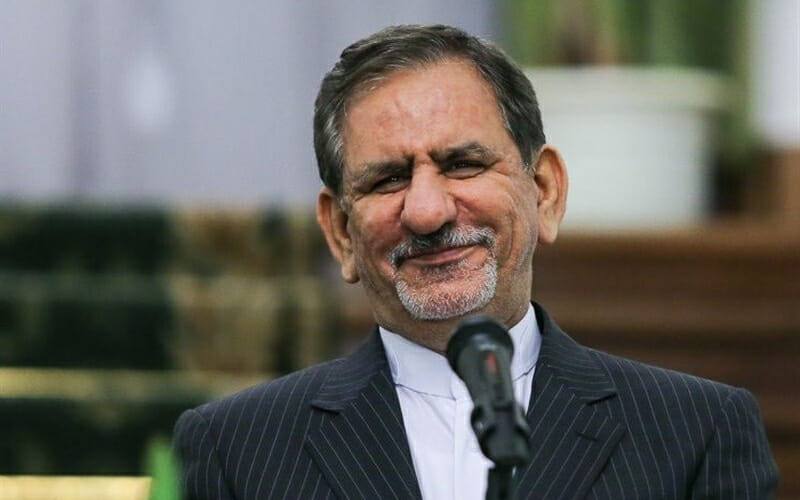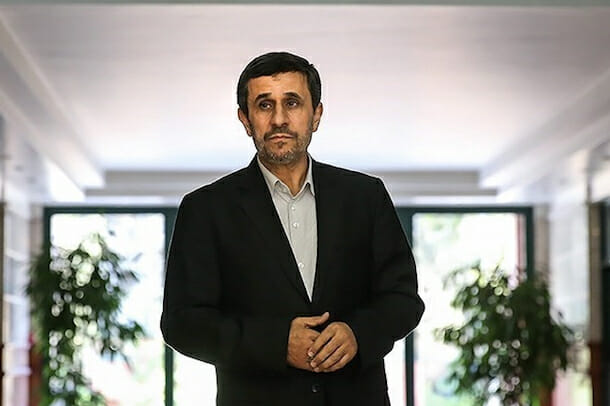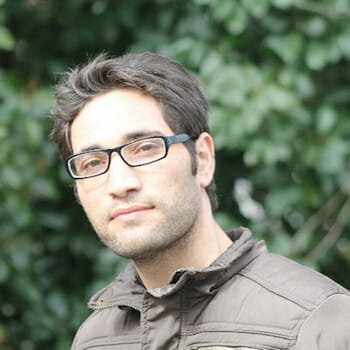
Racism, Hypocrisy and Iran’s “Resistance” Regime
Iran’s leaders and media are always quick to condemn perceived US racism and bigotry. The Iranian First Vice President Eshaq Jahangiri issued a thinly veiled condemnation of Donald Trump’s divisive policies in a speech on Friday. In the speech at the D-8 conference for developing nations in Istanbul, Jahangiri warned that unilateralism and racism, as expressed in the viewpoints of “certain leaders,” were things of the past, adding that the world now lives in an age of democracy, multiculturalism, tolerance, and co-existence.
“We should never let militaristic and violent policies replace dialog-based solutions,” the Iranian official added, warning that such policies could place people living in Muslim countries at risk of “death and destruction.”
These noble sentiments and assertions of disdain for bigotry are not new to Iran’s “resistance” regime. Government spokesman Bahram Ghasemi issued a similar stinging rebuke to Donald Trump in September, saying, “It is clear that religious and racial discrimination, Islamophobia, and xenophobia are a widespread and frequent phenomenon among American politicians.”
These are indeed noble sentiments and the just and loving, bigotry-free world described by Jahangiri and Ghasemi sounds like a great place. Unfortunately for the Arab people of Ahwaz, Kurdish, Balochi and Turkmen people, that place isn’t Iran where the supremacist leadership uses discriminatory, unjust and openly prejudiced policies to subjugate, terrorize and silence the country’s ethnic minorities.
While Iran’s regime likes to present a picture of a modern “moderate and reformist” state, spending large sums of money in recent years on slick media and political lobbying in the West to promote this image, it prefers to ‘forget’ less savory features like Iran’s status as the nation with the second highest per capita rate of executions globally after China. Its victims include women and children. The regime, which likes to present itself as a great friend to the oppressed and used its support for the noble cause of Palestinian freedom to win praise, also prefers to remain quiet on its own ignoble systemic persecution and ethno sectarian cleansing of Arabs of Ahwaz and other minorities both domestically and regionally.
Although the Iranian regime has used its now standard slogan ‘Death to America’ since the theocratic leadership first came to power in 1979, routinely referring to the US as the ‘Great Satan,’ its rulers still apparently expect the United States to take lessons in international relations from Tehran, and to turn a blind eye to the regime’s own domestic brutality and racism, as well as its involvement in terrorism and the catastrophic effects of its continuing regional sectarian expansionism.
Racism is nothing new for Iran’s rulers. The Pahlavi dynasty which ruled before the 1979 revolution also relied heavily on instilling a sense of racial superiority among ethnically Persian Iranians towards Arab, Kurdish and other minorities in the country in order to maintain their power. Many Ahwazi Arabs, Kurds, Baluchis, and, Turkish Azaris and Turkmen in Iran believed or hoped that the advent of the Islamic Revolution would sweep away this antiquated imperialist worldview; instead, the mullahs harnessed it and added a religious veneer.

Although Article 19 of the Iranian Constitution nominally enshrines protection for the country’s ethnic and cultural diversity, no measures have ever been put into place to penalize those who violate this article. This means that the supposed protection for the country’s minorities is solely theoretical and that in reality any legal action over racist statements or behavior by state authorities or individuals will be automatically dismissed. Moreover, the independence and neutrality of the judicial system in Iran remains questionable due to its being shaped and run according to unspoken but very clear supremacist doctrines. This racism extends into every area of life. Ahwazi Arabs, for instance, are prevented from publicly wearing their traditional Arab garb or speaking in their own Arabic language. Arabs are routinely demonized and ridiculed in the media and activists who attempt to raise awareness of these injustices are imprisoned, to which this author can attest.
Rather than being a single homogenous state, Iran consists of several different ethnic groups, with the Islamic faith being the sole factor which unites the majority of these. Despite the fact that Islam clearly proscribes any form of bigotry and promotes brotherhood, Iran’s leadership has been based, since the creation of the modern Iranian state by Reza Shah in 1936, on a clear though unofficial concept of Persian supremacism. Although the Persian people are one of five ethnic groups in the country which also includes the Kurds, Ahwazi Arabs, Azaris and Turkmen and the Baluchis, these other ethnicities and cultures have been marginalized in an effort to create ethnic and racial homogeneity, with only one, Persian language and culture-defining the nation and its peoples. Through this very deliberate effort to ignore, delegitimize or simply deny the culture, language, and history of these other ethnic groups, successive regimes have created a strong nationalist and supremacist identity in which Persian ethnicity, language and culture are vanquishing their ‘inferior’ Arab, Turkish, Kurdish and Balochi counterparts.
This creation of a state and culture founded on the supremacy of Persian ethnicity, identity and culture means that minorities in Iran face systemic marginalization, bigotry and abuse at every level, from individuals to media to state institutions. For example, under the current and previous regime, all publications and media concerning Iranian history, and even the school curriculum, are carefully monitored to ensure that they teach only a heavily edited history of Persian conquest using only the Farsi language – the only language allowed in media or education. This leads invariably to a state of constant historical revisionism, with no recognition of historical Arabic or other place names; the internationally known Shaat al Arab waterway, for instance, is known in Iran only as the Arvand.
This attempt to impose a homogenous Persian culture and to eradicate others in Iran, even to the extent of changing the historical names of cities, rivers and landmarks, is depicted as benevolent modernization, with the Ahwazi Arab and other ethnic groups whose local history dates back millennia represented as being either foreign interlopers or primitive backwards peoples who should be grateful to abandon their own regressive cultures in favour of becoming part of the “superior” dominant Persian culture. The advent of the information age and the internet and the communications revolution of the past few years have played an incredible role in exposing these falsehoods and in increasing awareness among the oppressed minorities who can finally express themselves and set the record straight on their (our) long-marginalised cultures and identities.
Jahangiri also stated “Discord, violence, and terrorism anywhere and through any name is dangerous and is even more dangerous if it is presented in the name of religion, ethnicity, and nationality. We are honored to have been presented with a religion, a culture and a civilization that promotes mercifulness, affection, ethics, justice, and freedom.” Speaking on condition of anonymity, one activist noted wryly that Jahangiri appeared to have listed all the Iranian regime’s crimes and characteristics, adding, “Dictators in glass houses shouldn’t throw stones.”
I and millions of other long-oppressed Ahwazis, Kurds, Turk Azaris, Turkmen and Baluchis agree wholeheartedly with First Vice President Eshaq Jahangiri that racism is a terrible evil, and that the 21st century should be an age of democracy, multiculturalism, tolerance and co-existence. I concur enthusiastically with his assertion that militaristic and violent policies should never replace dialog based solutions, and that they place people living in Muslim countries at risk of death and destruction.
Iran’s minorities have suffered almost a century of racism, oppression, death and destruction at the hands of the militaristic thugs imposed by successive supremacist rulers. It is indeed time for change.
